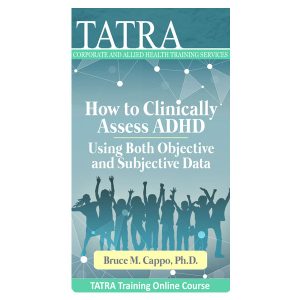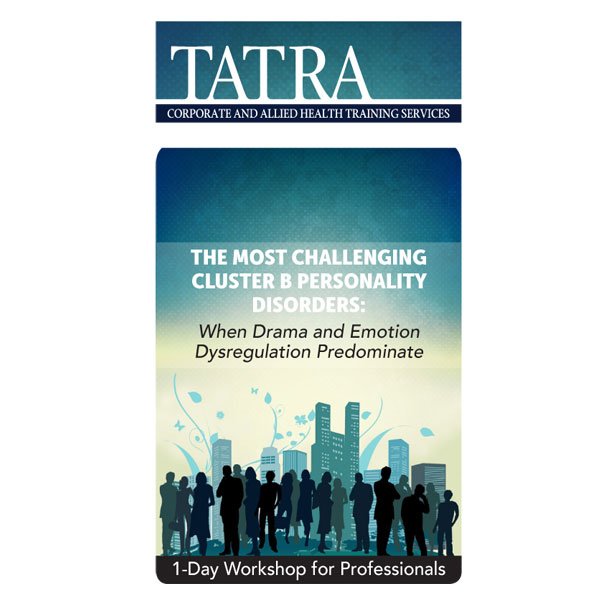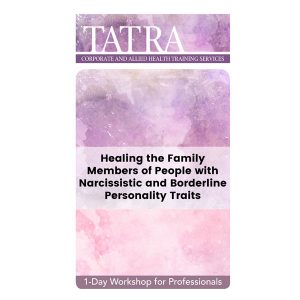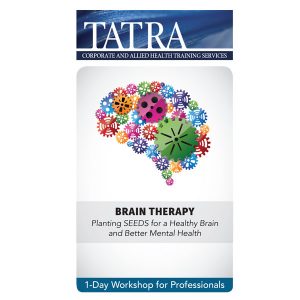In this seminar recording, expert and author, Sharon Freeman Clevenger (MSN, PMHMSN-BC, CARN-AP) delivers an intensive workshop designed to provide you with the most practical information, knowledge, skills, and abilities to accurately identify and work with the clients who exhibit traits of borderline, narcissistic and antisocial personality disorders.
The Personality Mystique
- What is Personality? Overview and Case Example
- ICD-10 and DSM-5® criteria: What is the difference? And does it matter?
- Using diagnostic criteria accurately and avoid common mistakes
- Core beliefs: What are the most common core beliefs for each of the Cluster B disorders
- Understand the role of core beliefs: how to identify them, interrupt them and work with them with Borderline, Narcissistic and Antisocial disorders
- What else could these behaviours mean? When the client seems to have more than one disorder.
- What to do when you experience a strong emotional reaction to the client: Countertransference recognition and interruption
- Attachment issues, suspiciousness and lack of intimacy as it relates to Cluster B
- Developing confidence in diagnosis of Cluster B disorders
- Practice makes perfect: How simple techniques improve the clients ability to respond to stressors
Antisocial Personality Disorders
- Predictors of Antisocial Personality disorder in Childhood
- Case Example: Antisocial Personality Disorder
- The Common Overlap criteria with other disorders
- When charm and charisma are danger signs
- Common impediments to change processes
- How to determine if you have to intervene when inappropriate or dangerous language is used by the client
- “Put down the rope” when you feel like you are in a “tug of war”
- What is happening in the brain that may influence antisocial behavior
- Using CBT and Motivational Interviewing with the reluctant, or oppositional client
- Common Psychotropic Medications used with Antisocial disorders and the risks of some of them
Narcissistic Spectrum
- Narcissistic disorders: Typologies
- Case Example: Antisocial Personality Disorder
- The Common Overlap criteria with other disorders
- Couples and Narcissism: Who do they choose as partners? Overview of dangers and common presentations in couple’s therapy
- Common impediments to change processes
- Do Narcissists know they are Narcissists? And is it important?
- “Thin skinned” perfectionism and hypersensitivity
- Can you develop empathy in someone who lacks empathy?
- Using CBT and Motivational Interviewing techniques to set goals with a Narcissist
- Using CBT techniques to interrupt and modify common thought patterns and behaviors
- How to recognize and discontinue debates, arguments and power struggles
Borderline Personality Disorder
- Is this just one disorder? Borderline as a Spectrum Disorder
- Childhood predictors: Attachment, trust and intimacy
- What is happening in the brain that may influence emotion dysregulation and impulsive behavior
- Using ATRs, CBT and DBT effectively and what is the difference?
- Developing motivation for change: Understanding Incremental Change targets
- Safety: How to manage emotional dysregulation, threats and anger
- What does Countertransference have to do with it?
- Using a therapeutic collaboration with your client to increase stability
- Core beliefs common in Borderline Individuals: How to identify and modify these
- The Five Skill Sets for Borderline Personality Disorder
- Couples and Family issues with Borderline Personality Spectrum
- Addressing fear of abandonment
- Common Psychotropic Medications: Polypharmacy, comorbid conditions and associated risks



 How to Clinically Assess ADHD Using Both Objective and Subjective Data
How to Clinically Assess ADHD Using Both Objective and Subjective Data



